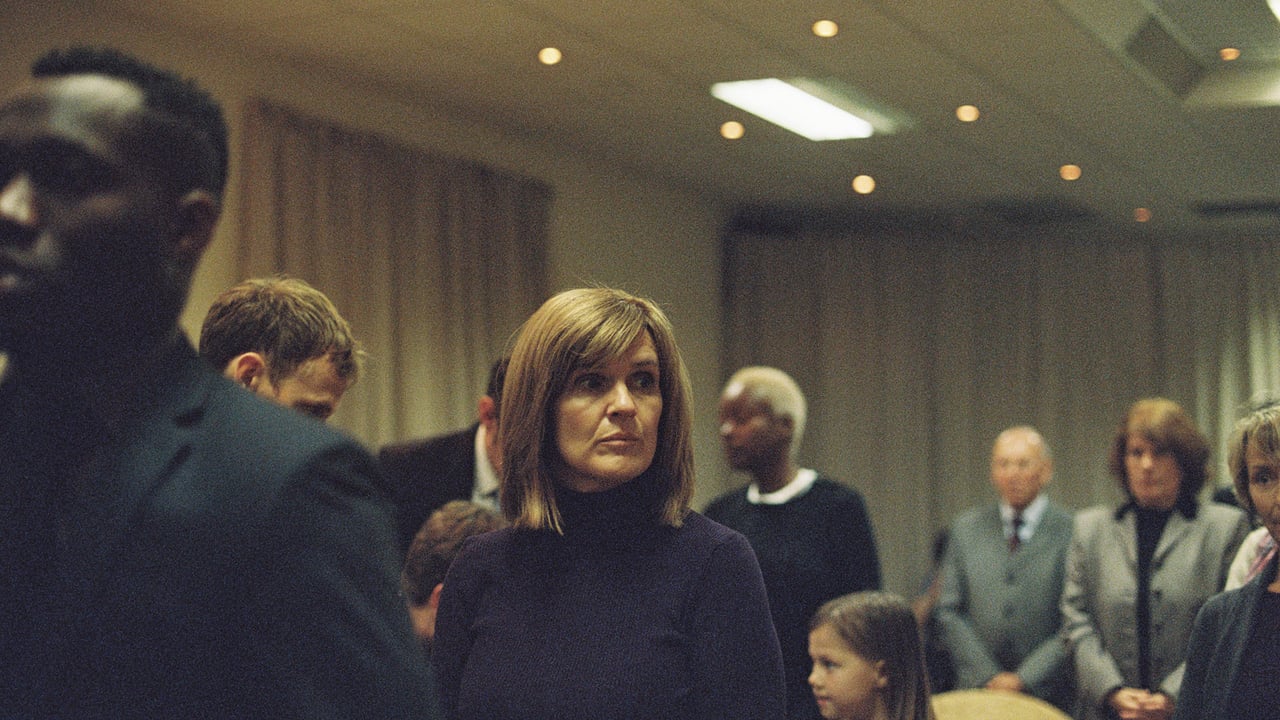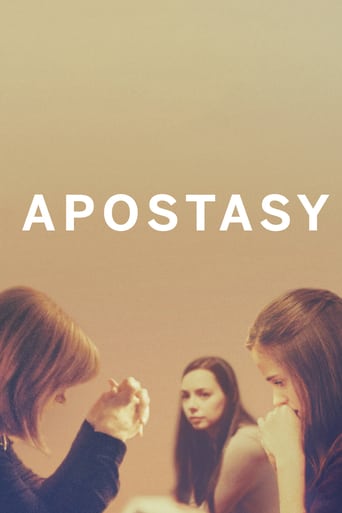

I'd like to say first, if you haven't watched the movie, I do think reading the spoilers would spoil it for you, so maybe pass on that review. So I came to this film after a long time researching what I would watch that night. When I found this title, I wasn't expecting much else than the "predictable route" movies about leaving a religion often chose to follow. Not something bad, but the typical story of movies about this subject, much like in the dystopian movies where the character is first exposed to the reason why this is a dystopia, then chooses to fight, then joins the revolution, etc, etc. Doesn't make the story bad, it just makes it predictable. But this movie went to places I just didn't imagine. The story isn't of a character who slowly comes to the realisation that something is wrong - then quits - then, freedom and consequences. No, no. We actually follow three main characters: a daughter, her sister, and their mother. We leave our first character when she dies after refusing blood transfusion, and then we slowly comes to the realisation that she's gone as we now follow her grieving mother. The character who decides to leave the cult, the older sister, isn't the only one which the story is about, and actually appeared to me almost as a secondary character here. What we follow is rather those who stay, those who can't get away from the cult. And through their experiences, and a very interesting direction, we get to experience this life, as if in a bubble. To me, someone who's never been involved with anything or anyone related to this cult, this felt as if being into another world. Being trapped. All of those grey lights, those curtains on the windows, those spaces which do not seem to belong in the same society I live in. And here we see lives we could see change, we could see leaving, because of the pain they experience. We see the doubt, the hesitation, the desire to leave. But those two, they do not. They stay in. They stay imprisoned, in a way. Well, this is what I felt. So the apostasy is, somewhat, secondary: it provokes the story, it moves the minds of those thow characters, but, eventually, it doesn't, and I think it's what it's also about. They aren't chained, there is no bars between them and the world, but they are trapped, it's as if they do not have any other choice. The images, the music, the acting, everything was great and I loved this movie despite not knowing about the Jehova's Witnesses very well. I think this movie brings questions about freedom that can be interesting to anyone.
... View MoreSurely the two most fundamental things that a film needs are good acting and a good script. This one had neither. I have no ideological ax to grind, I have no religious beliefs but am interested in religion as a phenomenon. Nobody in this piece came across as sincere or passionate. Blank expressions were the order of the day, and all opportunities for real drama were thrown away. They managed to make potentially promising material simply boring. I couldn't believe in any of the characters or the story itself. All the film managed to achieve was to make the JW cult appear dangerous and ridiculous, which is pretty easy to do. One to avoid in my opinion. See 'First Reformed' instead.
... View MoreThe Truth ! as Jehovah's witnesses would put it , you get to hear that a lot from them as a people. One things that is for sure this film is 100% truthful in in portrayal of the life within the faith, also the impact on the family when a person is disfellowship the sense of isolation and loneliness was very apparent as someone who has travelled this road Ex JW not for me an easy film to watch but in all honesty it was very accurate in just about every aspect of life within the faith possible trigger for disfellowshipped / shunned
... View MoreJust about everything that could go wrong for a JW family actually happens in this sad but accurate portrayal of life in the Watchtower culture. Both the acting and the story are superb, and raise troubling questions about raising children in an environment of near total control by the JW organization and local congregation elders. This unvarnished and rare behind the scenes look bears witness to the complete disintegration of one family, and will leave viewers haunted by what they observe.
... View More